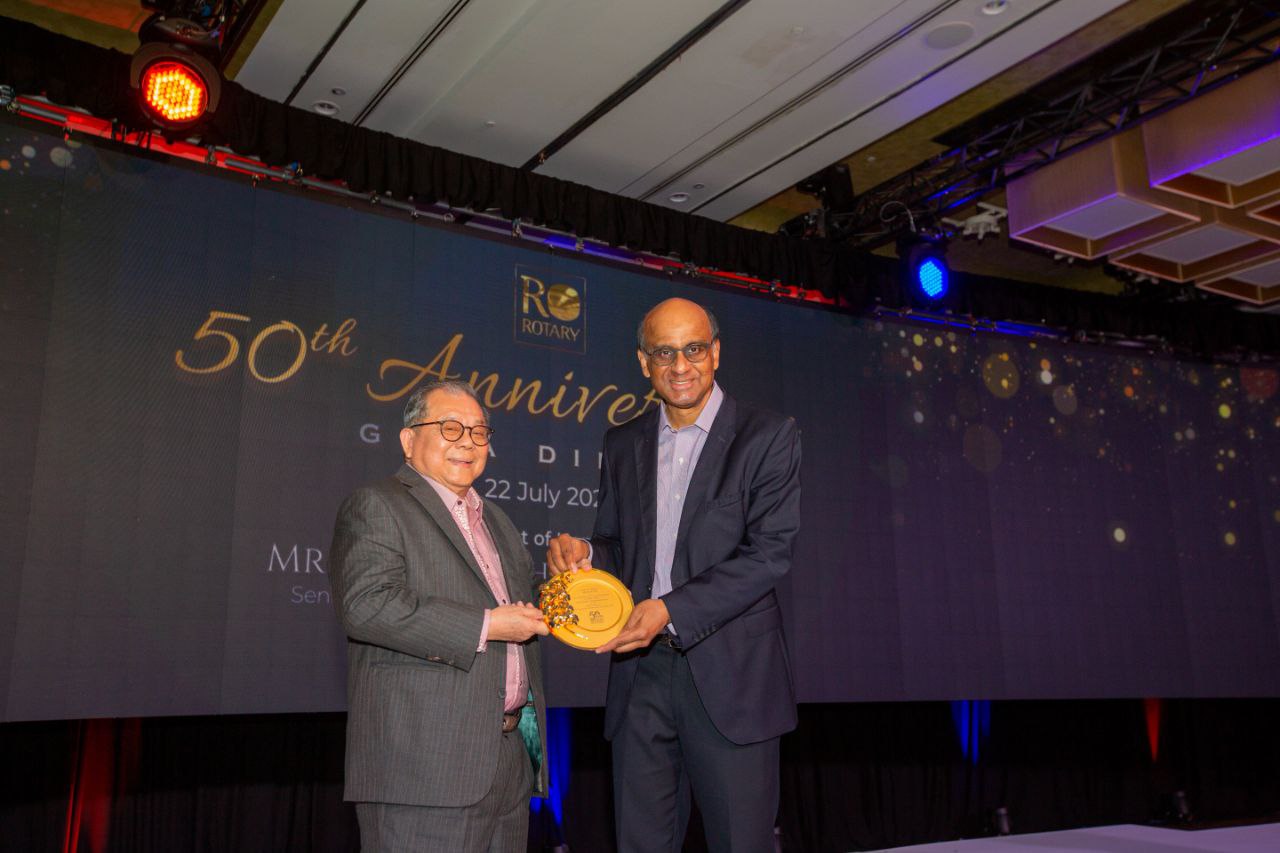Energy and chemical sector must evolve as climate change comes to the fore: Tharman
Sign up now: Get ST's newsletters delivered to your inbox

Rotary Group chairman Roger Chia Kim Piow with Senior Minister Tharman Shanmugaratnam at the Rotary gala dinner.
PHOTO: ROTARY ENGINEERING
SINGAPORE - The energy and chemical sector must prepare for fundamental changes to their businesses and jobs as climate change becomes foremost in plans and ambitions, said Senior Minister Tharman Shanmugaratnam on Friday (July 22).
They must also gear up for an era of intense technological change, with digitalisation affecting not just businesses but also every individual job, said Mr Tharman, who is also Coordinating Minister for Social Policies.
Speaking at the Rotary Engineering 50th Anniversary Gala Dinner at Marina Bay Sands, he said Singapore was "completely focused" on this transformation.
"We are ambitious, but we intend to upskill and continually transform our entire workforce in years to come," he added.
Paying tribute to Rotary Engineering, which provides oil and gas infrastructure services, for the determination and self-belief of its leadership over the years, he said the company has taken steps to build new capabilities to handle new sources of energy, and created the necessary skills framework for its personnel, to take it to the next chapter.
Among its efforts, Rotary Engineering has trained its fresh engineers to take on more responsibilities as project managers by partnering with the National Centre for Excellence for Workplace Learning at the Singapore Institute of Technology (SIT).
More than 140 engineers have benefited from the programme, which is conducted over a 15-month period, since it began in 2020.
Rotary Group chairman and managing director Roger Chia Kim Piow emphasised the need for the continual training for workers.
"A skilled workforce translates to a better quality of work, a safer workplace, and improved productivity," he said.
Rotary Engineering and SIT also inked a long-term memorandum of understanding on Friday to advance students' skills in the chemical and energy sector.
The collaboration will take place on three fronts: curriculum development, work experience for SIT students, and job opportunities for graduates in Rotary Engineering.
The firm will provide technical expertise to assist the university with developing new curriculum modules, such as on engineering drawings and process safety.
Mr Bernard Nee, vice-president of industry and community at SIT, said that the university supports the company's efforts to build a future-ready workforce through learning in the workplace.
He added that the collaboration paves the way for new internship opportunities for SIT students.
Rotary Engineering will offer over five internship positions to SIT engineering students starting next year.


